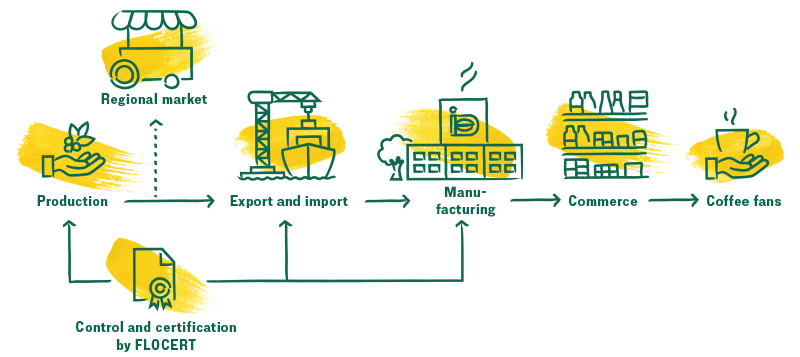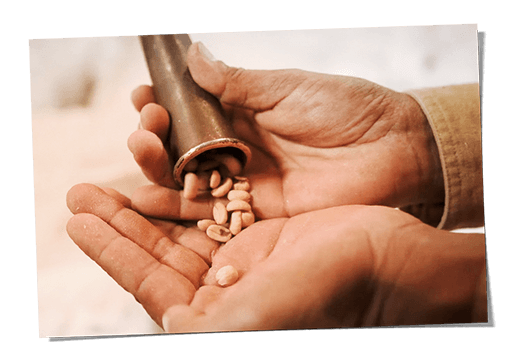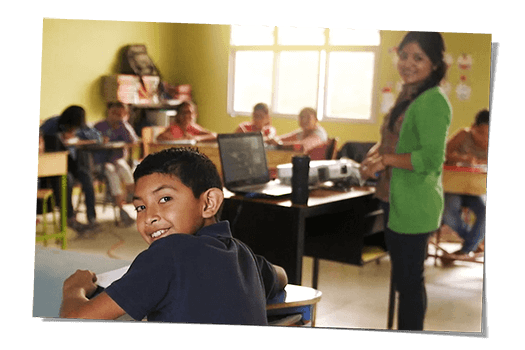The Fairtrade seal is widely recognized—whether on supermarket packaging or in advertisements. But what exactly does it stand for? Here, you’ll find out what it means for you and, most importantly, for the people in the coffee-growing regions.
As early as 1993, we had a clear goal: to promote fair trade with Germany’s first Fairtrade coffee. What started as a vision has now become the mindset of an entire generation of coffee enthusiasts.
Today, consumers care about more than just taste when buying coffee. Key purchasing factors include the origin and working conditions in the producing countries. They want to ensure that the families involved in coffee cultivation and production receive fair wages and are treated justly.
That’s why organizations like Fairtrade are essential. They oversee the entire value chain of coffee and other products—from working conditions at the farms to export and import, all the way to us as coffee roasters.

How does coffee become Fairtrade coffee?
Through the Fairtrade code on your coffee packaging, you can trace where your Café Intención product comes from. This way, you always know the journey your coffee has taken to reach your kitchen table.
The Fairtrade seal isn’t something you can buy—you have to earn it. Strict guidelines must be met, which Fairtrade upholds. These requirements fall into three main categories.
Social Standards:
- Organization in democratic communities (for cooperatives)
- Promotion of trade union organization (on plantations)
- Regulated working conditions
- Prohibition of exploitative child labor
- Non-discrimination policies
Environmental Standards:
- Environmentally friendly cultivation
- Protection of natural resources
- Ban on hazardous pesticides
- No genetically modified seeds
- Promotion of organic farming through an organic premium
Economic Standards:
- Payment of Fairtrade minimum price and Fairtrade premium
- Verification of product and financial flows
- Guidelines for the use of the Fairtrade seal
- Transparent trade relationships
- Pre-financing options
As you can see, there are many criteria that must be met. The independent global organization FLOCERT is responsible for overseeing compliance. If all standards are met, FLOCERT awards the product with the Fairtrade seal.

How does the Fairtrade seal benefit coffee-growing countries?
Fairtrade is not just a quality seal for consumers in Europe. It provides real benefits to people in coffee-producing countries. Beyond improved working conditions and fair wages, they also receive Fairtrade premiums. These premiums allow cooperatives to invest collectively in social projects or infrastructure improvements in their region—ensuring that as many people as possible benefit, including the next generation of coffee producers.

How local cooperatives use the Fairtrade premium:
- Expansion of buildings and infrastructure for the organization
- Optimization of personnel and administration
- Training for employees, committees, and the organization
- Improved education for children and young people
- Direct payments to members
- Improvements in productivity and quality
- Attractive credit and financial services for members
- Comprehensive healthcare services for members